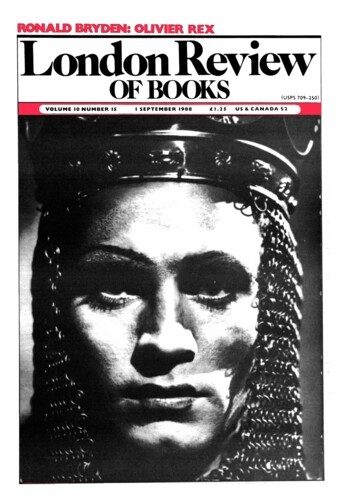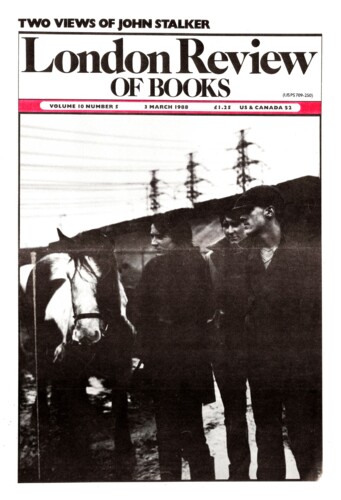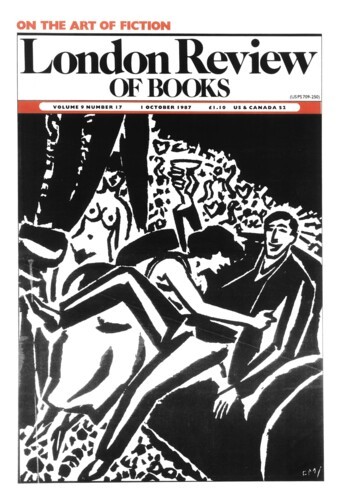Cityscapes
Stephen Wall, 1 September 1988
Historical novels regularly try to hook you in to their unfamiliar worlds by some arresting initial display of their subject’s narrative potential. The technique goes back to Scott, and William Kennedy’s Quinn’s Book is orthodox enough in providing a sensational set-piece in its opening pages. He hasn’t deserted his habitual location of the town of Albany but has gone back to how it was in 1849, the date of a freak accumulation of ice on the Hudson River which briefly forms a huge iceberg before exploding through internal stress, flooding the adjacent wharves and indirectly causing a fire which destroys six hundred buildings. The real point of the episode, however, is that it brings together the novel’s main characters in bizarre conjunction.



